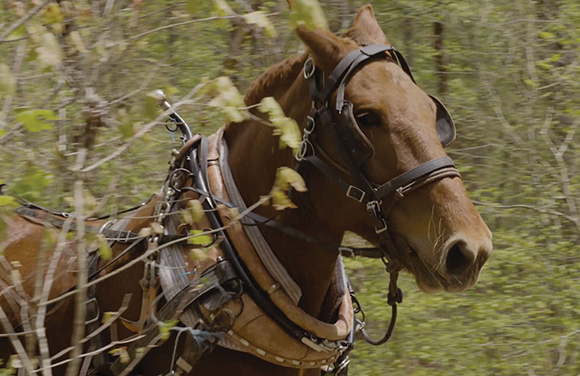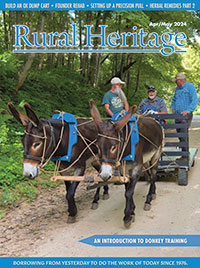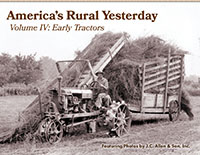Somehow Hopeful


Several years ago, Jerry McNutt set out to make a film about restorative forestry. It wasn’t long before he found his lens turned on horse drawn loggers who, for years, have been improving the woodlots they manage. He realized the best way to tell the story of horse-powered regenerative forestry was to focus on the people and horses involved.
Somehow Hopeful is a feature-length documentary premiering June 16, 2022. It shines a light on regenerative logging with draft horses by focusing primarily on Jason Rutledge, the Healing Harvest Forest Foundation nonprofit he founded, and the Suffolk Punch draft horses he’s been using for over half a century. That’s not to say the film is exclusively about Rutledge. McNutt introduces us to a number of other horse loggers, horse-powered farmers, craftspeople using the timber harvested by horse power, foresters managing large tracts of woodlands and mentors teaching the skills required to work horses in the woods.
In many ways, Rutledge is the perfect spokesperson for the movement McNutt sought to document. Jason was among the first to practice and teach the worst-first method of selective timber harvesting. Where conventional loggers either clear-cut a hillside, or selectively remove the best specimens and leave the less desirable trees, Jason and loggers like him picked out the worst examples of trees to remove, thereby improving the future growth in the woodlot.
Anyone who has met Rutledge has likely heard him describe the critical role woodlands play in our ecosystem, how worst-first timber selection can improve a woodlot within a decade or so, and why we would do well to recognize our responsibilities to protect, preserve and restore the forests we’ve mismanaged for so long.
Similarly, Jason has been a powerful friend of the Suffolk Punch breed of draft horse in America. He has imported breeding stock, advocated to protect the breed purity and spent most of his life promoting the Suffolk as a horse truly “bred for work.”
Finally, he has encouraged and assisted young people interested in taking up the cudgel against conventional, exploitive forestry. He speaks of a “cultural community,” a web of people involved in horse-powered forestry and agriculture, whether harvesting timber, growing crops, building cabinets or baking bread. This community supports and is engaged in local economies, providing employment and quality of life — much like during the days of pre-World War II America.
Somehow Hopeful meticulously captures Jason’s eloquence when talking about the woods, horses and people he’s known. But it does much more. Through his artful videography, McNutt puts us in the woods. We walk alongside Chad Miano’s powerful horse, Alabama, as he strains to haul a heavy log uphill, hooves finding purchase, nostrils snorting, leather and chains straining against the load. We fly along a stream coursing through the woods as a heron might, seeing with our own eyes the important harmony of the woods. Circling high above, we watch as a tree is felled with precision to land carefully, with little damage to itself or the trees around it.
McNutt puts us in the homes, barns and studios of a variety of people that make up the “cultural community” Jason talks about. We meet the folks using the logged timber to create products people use and appreciate. And we are introduced to a younger generation of horse loggers who have taken up the mantle, providing a promising future for the restorative forestry movement.
Many of the people interviewed are friends of mine — folks I’ve interviewed for our television program. Somehow Hopeful faithfully represents them and their work. They appear on screen exactly as they appear in real life, a difficult accomplishment for a filmmaker.
I would heartily recommend Somehow Hopeful for the beautiful footage alone. That, combined with its comprehensive interviews, makes for a thoroughly compelling film.
Like a number of projects before it that raise awareness of important issues and offer tangible solutions to what appear to be insurmountable problems, Somehow Hopeful runs the risk of hauling coals to Newcastle, or preaching to the choir, among many of our readers. You already know the woods are important. You already know worst-first selective harvesting is the best way to improve mismanaged forests. And you realize that, in many cases, draft animal power provides the best means to extract timber while minimizing damage to surrounding foliage and terrain.
I certainly knew all these things going in as I watched the film but found myself savoring the way Somehow Hopeful validated those core ideas. I suggest you watch it and invite your friends to watch it, particularly those who may need convincing of the value of horse logging and its role in restorative forestry.
The film is available for extended rental online on vimeo-on-demand beginning June 16, 2022. You can find it by visiting www.somehowhopeful.com.
j.m.


